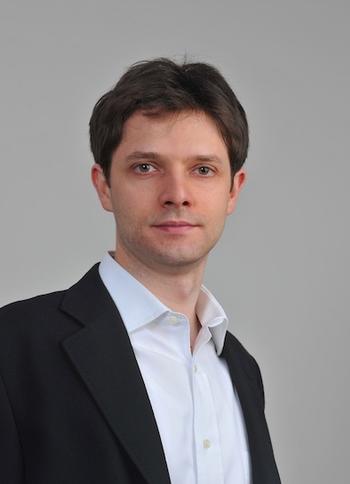Prof. Dr. Luca Stella

Università Degli Studi di Milano
Department of Economics, Management and Quantitative Methods
Professor
Office hours
by registration
Current Courses –– Summer Term 2023:
- Statistical Reasoning (BA)
- Research Seminar Applied Microeconomics (MA & PhD) [course description]
Luca Stella’s work focuses on three main areas: the effects of technological change on health and life-course choices, the economics of immigration, and the economics of the family. In a study published in the Population Studies (2019), joint work with Francesco Billari and Osea Giuntella, they explore the effects of access to high-speed Internet on fertility in Germany. The researchers find that DSL access increases the fertility of women aged 25–45. These results are entirely driven by highly educated women. In particular, they show that DSL availability increases the likelihood of teleworking, promotes part-time working, and increases time spent on childcare by highly educated women. Overall, these findings suggest that increasing access to high-speed Internet may promote fertility among highly educated women by easing the burden of balancing work and family duties. At the same time, Broadband might introduce a ‘digital divide’ in fertility, allowing highly educated individuals to realize their fertility goals, while not improving those chances for less-educated individuals, who tend to be employed in less flexible occupations.
In a current research project, Luca Stella and his coauthors focus on a more recent technological change, i.e., the development of robotics and automation, that instead of playing a facilitating role for fertility and family choices, poses a potential threat for them. They focus on the US labor market and find that commuting zones that were more exposed to robots penetration exhibit a reduction of fertility rates, although they experienced an increase of out-of-wedlock fertility. The researchers also document a decrease in marriage rate and an increase in cohabitation. They then explore the differential effect on the labor market opportunities of men and women, and find that in commuting zones that were more exposed to robots the gender-wage gap declined. Overall, their findings suggest that a decrease in the relative marriage-market value of men and increased economic uncertainty may be relevant transmission mechanisms of the impact of robot penetration on marriage and fertility rates.
Publications:
“Exposure to Immigration, Birthplace Diversity, and Attitudes toward Newcomers” (with Rania Gihleb and Osea Giuntella). Migration Studies, 2022
"Industrial Robots, Workers' Safety, and Health" (with Rania Gihleb, Osea Giuntella and Lorenzo Rotunno). Labour Economics, 78, 102205, 2022.
“Globalization, Fertility and Marital Behavior in a Lowest Low Fertility Setting” (with Osea Giuntella and Lorenzo Rotunno). Accepted at Demography, 2022
“Robots, Marriageable Men, Family, and Fertility” (with Massimo Anelli and Osea Giuntella). The Journal of Human Resources, 2021
“Immigration Policy and Immigrants’ Sleep. Evidence from DACA” (with Osea Giuntella, Jakub Lonsky and Fabrizio Mazzonna). Journal of Economic Behavior and Organization, Volume 182, Pages 1-12, 2021.
“Cohort at Risk: Long-Term Consequences of Conflict for Child School Achievement” (with Hendrik Jürges, Sameh Hallaq and Alexandra Schwarz). Journal of Population Economics, Pages 1-43.
“The Ant or the Grasshopper? The Long-Term Consequences of Unilateral Divorce Laws on Savings of European Households” (with Viola Angelini, Marco Bertoni and Christoph T. Weiss). European Economic Review, Volume 119, Pages 97-113, 2019.
“Does Broadband Internet Affect Fertility?” (with Francesco C. Billari and Osea Giuntella). Population Studies, Pages 1-20, 2019.
“Broadband Internet, Digital Temptations, and Sleep” (with Francesco C. Billari and Osea Giuntella). Journal of Economic Behavior and Organization, Volume 153, Pages 58-76, 2018.
“The Acceleration of Immigrant Unhealthy Assimilation” (with Osea Giuntella). Health Economics, Volume 26, Issue 4, Pages 511-518, 2017.
“Living Arrangements in Europe: Whether and Why Paternal Retirement Matters”. Review of Economics of the Household, Volume 15, Issue 2, Pages 497-525, 2017.
“Intergenerational Transmission of Human Capital in Europe: Evidence from SHARE”. IZA Journal of European Labor Studies, Volume 2, Article 13, 2013.
Working Papers:
“Unhealthy Sleep Assimilation” (with Francesco C. Billari, Osea Giuntella and Fabrizio Mazzonna).
